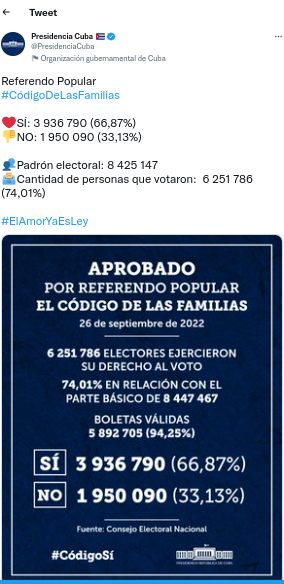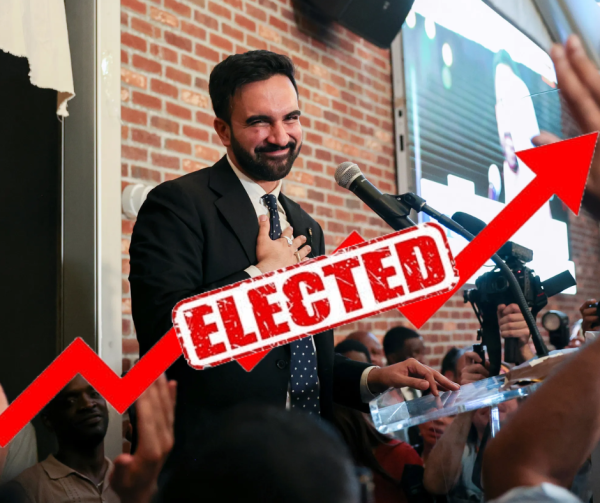Cuba legalizes same-sex marriage

Photo courtesy of Cuban Presidency Twitter
Cuban Presidency celebrates passing of LGBTQ+ marriage law on Sept. 27.
Same-sex marriage was legalized in Cuba; nearly four million citizens voted in favor of the historic referendum on September 27.
For decades LGTBQ+ people in Cuba faced discrimination. In the early 1960’s many Cubans were sent to government-funded concentration camps, homosexualty was legalized in the late 1970’s, but many members of the LGTBQ+ community were still being openly discriminated against.
Just recently on September 27, a “family code” was passed, allowing LGTBQ+ couples to marry and adopt children. About 67 percent of citizens had voted in favor of the family code while the other 33 percent had voted against the code, according to the Cuban Presidency twitter account.
Cuban President Miguel Diaz-Canel celebrated the passing of the referendum, saying in a statement on his personal twitter account , “Love is now the law” … “Passing the law was a way to pay a debt to various generations of Cubans whose domestic plans had been waiting years for this law.”
In 2010, Argentina became the first country in the region to approve Same-Sex marriage; over 2000 LGTBQ+ couples have since married. Following Argentina are; Brazil and Uruguay (2013), Columbia (2016), Ecuador and Mexico (2019), and Costa Rica (2020).
Meanwhile, Same-Sex marriage is constitutionally banned in Houndorus(2005), El Salvador and Dominican Republic(2009). In Bolivia, the new Constitution(2009) limits ways same-sex couples can get married.
LGBTQ+ activists face backlash from social and religious conservatives, and some leaders, including president Nayib Bukele of El Salvador and Jair Bolsonaro of Brazil, are openly hostile to LGBTQ+ rights.
With public policies toward gay marriage varying widley, this is a critcal moment to ask LGBTQ+ members for thier opinions.

Antonio Ortiz is a senior, who is a part of Niles North's International Thespian Society and Directors Circle program. He plans to pursue a career in any...







Cynthia Fey • Oct 7, 2022 at 9:23 am
Great news! Thanks for sharing this update! The Brazil presidential run-off on October 30 will show if Bolsonaro falls out of power.